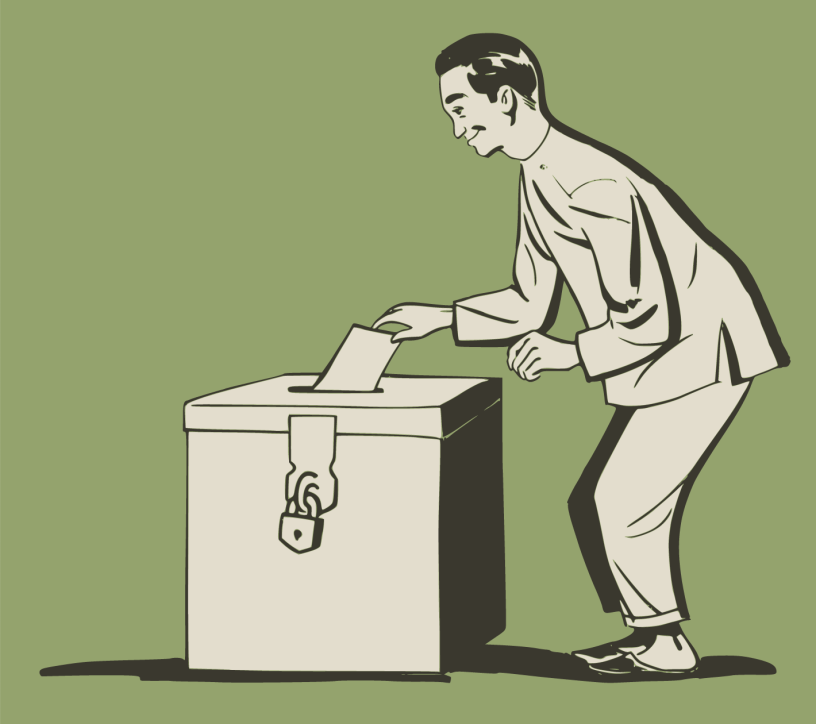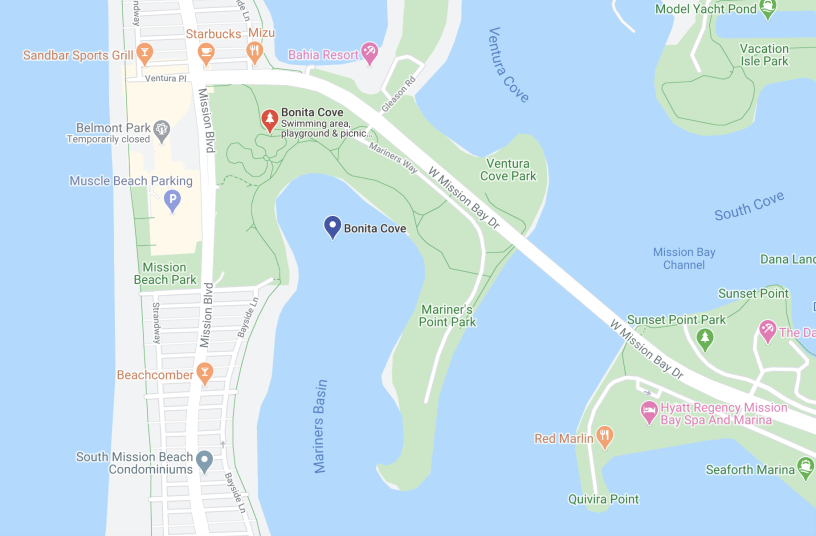The People's Business: May 11, 2020: Ballot-Measure-Palooza
Most Council committee meetings have been cancelled indefinitely in response to the COVID-19 pandemic -- but not the Rules Committee. The Rules Committee, chaired by Council President Georgette Gómez, must meet so that it can consider a big, bangin' bundle of measures proposed for the November 2020 ballot. It's the law!
Rules Committee -- Wednesday, May 13
 The May 13 Rules Committee agenda includes just two items, but don't let that fool you -- the second item sneakily contains 18 (!) sub-items.
The May 13 Rules Committee agenda includes just two items, but don't let that fool you -- the second item sneakily contains 18 (!) sub-items.
The first item is a proposed ballot measure that the Rules Committee had previously considered for the March 2020 ballot but opted to reconsider it for November. The measure, proposed by a group known as Parents for Quality Education, would change the way members of the San Diego Unified School District Board of Education are elected. Currently, in the primary election, voters in five sub-districts choose the top two candidates to represent those districts, and then in the general election, those candidates vie against each other for the affections of voters citywide. The proposed measure would make both the primary and the general elections district-only affairs.
The second item includes 18 additional proposed ballot measures that the committee will consider. Here they are:
- Sub-item A: To make way for new housing and an entertainment district in the Sports Arena area, City Councilmembers Jennifer Campbell and Chris Cate want voters to consider removing the height limit for the entirety of the Midway - Pacific Highway Community Plan area.
- Sub-item B: City Attorney Mara Elliott wants voters to consider making a number of changes to the City Charter that she believes would clarify ambiguities or conform to changes in federal and state law. There are four top-priority proposals the City Attorney wants to include on the November 2020 ballot, plus another four that she says can be pushed out until November 2022, and one that she leaves to the discretion of the Mayor and City Council. These proposed changes are rather arcane, and we won't go into detail here. To learn more, click the agenda, then click Item 2 to find links to all the sub-items.
- Sub-item C: The City's Department of Finance and Rolando Charvel, the City's chief financial officer (CFO), want voters to consider ridding the City Charter of certain language that is antiquated and wastes valuable human resources. Currently, the City Charter requires the Finance Department to certify, in writing, that there's enough money in the budget to pay for all contracts over a certain dollar amount. But the City now has software that prevents the expenditure of funds when there's not enough money available. This proposal would instead require the CFO to certify annually that budgetary controls exist to ensure that the City operates within its approved budget.
- Sub-item D: Interim City Auditor Kyle Elser wants voters to consider allowing the office of the City Auditor to seek outside legal counsel when it determines that the City Attorney has a conflict of interest.
- Sub-item E: A group known as Neighborhoods for Clean Elections wants voters to consider creating a voluntary program of public financing for candidates in mayoral, city attorney, and City Council elections.
- Sub-item F: A group known as More Choice San Diego wants voters to consider creating a new way to elect the mayor, city attorney, and City Council members. Under the proposal, voters in the primary election would send the top four candidates, rather than the current top two, to the general election. Then, in the general election, voters would rank those four candidates in order of preference. If no candidate receives a majority of first place votes, the candidate with the least number of votes is considered defeated and those voters who chose her or him as their first choice are instantaneously transferred to their second-choice candidate. That process of elimination is repeated until a candidate has a majority of the vote.
- Sub-items G and H: Civic activist Katheryn Rhodes wants voters to consider two measures related to transit-occupancy tax (TOT):
- The first proposal would ask voters if the TOT in San Diego should be raised from the current 10.5 percent to 14 percent, and, in the event voters say yes, whether the increased revenue should go to general City services or to affordable housing and homelessness solutions.
- Rhodes' second idea would reclassify online travel agencies as hotel operators in the City's TOT ordinance. In her proposal, she writes that this change would close a legal loophole, "and keep tax revenue in San Diego instead of out-of-state businesses like Expedia, Hotels.com, Travelocity, Orbitz, etc."
 Sub-item I: A group known as the Prevent Drowning Foundation of San Diego wants voters to consider allowing an aquatic safety and junior lifeguard center to be created at Bonita Cove in Mission Bay Park (on the bay side of Mission Beach). UPDATE: This group has withdrawn their proposal.
Sub-item I: A group known as the Prevent Drowning Foundation of San Diego wants voters to consider allowing an aquatic safety and junior lifeguard center to be created at Bonita Cove in Mission Bay Park (on the bay side of Mission Beach). UPDATE: This group has withdrawn their proposal.- Sub-item J: San Diego attorney Matt Valenti wants voters to consider requiring organizations funded by the City to, among other things, mandate LiveScan fingerprinting for all employees and contractors who provide services to minors, provide training for all staff and all contractors who qualify as mandated reporters under state law, and provide child-abuse-prevention training for all staff and contractors who qualify as mandated reporters.
- Sub-item K: To keep up with changes in state law and continue to be eligible for state funding, the San Diego County Building and Construction Trades Council wants voters to consider allowing the City to imposing project labor agreements in construction projects.
- Sub-item L: A group led by the Center on Policy Initiatives and the San Diego State University Department of Sociology's Center for Community Research and Engagement wants voters to consider requiring employers to provide workers with two weeks of advance notice of work schedules, among other provisions aimed at protecting employees from unpredictable scheduling practices. UPDATE: This group has withdrawn their proposal.
- Sub-items M through R: San Diego attorney John Stump wants voters to be allowed to consider six different measures. They would:
- prohibit construction, operation, purchase, or maintenance of facilities related to nuclear power;
- create a new or revised policy detailing the content, presentation, and Council consideration of major contracts, leases, franchises, and grants in excess of $10 million;
- break off the elementary schools within the San Diego Unified School District into five or more independent elementary school districts;
- require the City to budget for human services and housing as part of its annual department-level budgeting;
- mandate that elections for San Diego Unified School District Board of Education seats follow, to the greatest extent possible, the same rules and limitations as elections for Mayor, City Attorney, and City Council; and
- set standards for the City to recover costs related to the operations of the San Diego Zoo, including police, fire, general services, and solid waste.
Yegads, that's a lot of ground to cover.
The cool thing is, you can help them make their decisions. You can't show up to the meeting, but you can call in and have your say. Just dial 619-541-6310 and enter the access code 877861. And, of course, you can watch the meeting on Cox and Time-Warner channel 24, or AT&T channel 99, or stream it online.
Finally, a reminder that tonight is the City Council's public hearing on the City budget -- the meeting starts at 6 p.m. -- and tomorrow is the Council's regular Tuesday meeting. "The People's Business" covered those meetings in our May 8 post.
Have a great week!
Join our mailing list and get "The People's Business" delivered to your inbox. Find an index of past posts.
Follow @SDCouncilComms on Twitter.
Learn all about the 2020 U.S. Census and the importance of getting everyone counted.

